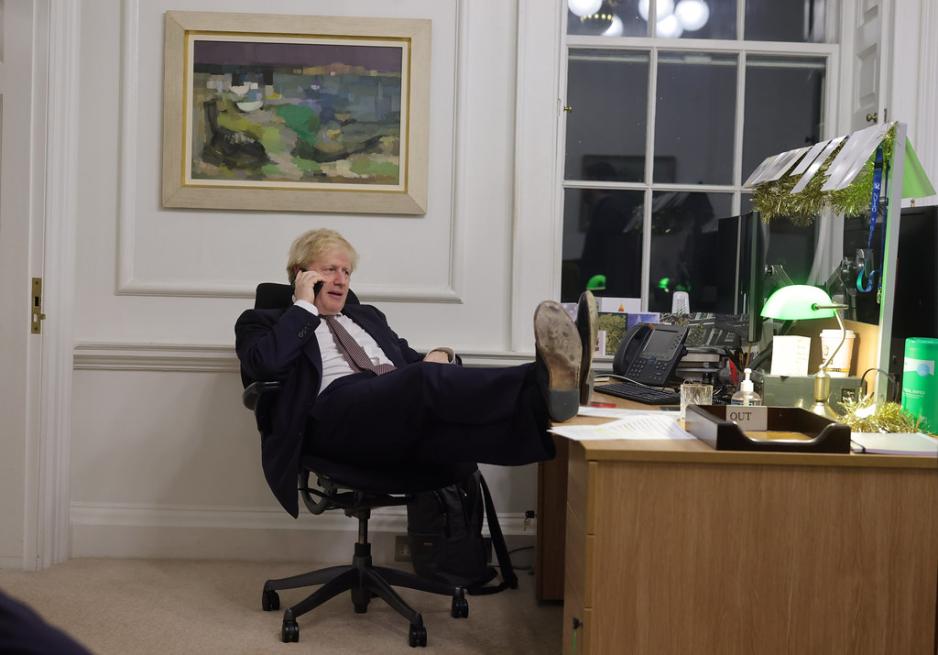Arne O. Holm says It Looks like a Proposal from A «Work Do» at Downing Street #10

During Boris Johnson’s work dinners, staff were told to bring their own booze. Even non-alcoholic work dinners can have somewhat absurd outcomes.
Commentary: There are political initiatives that are so poorly founded that one suspects they were created during one of the infamous working dinners at Downing Street #10 in London. Here, BYOB appears to be the norm for staff when new policies are to be shaped.
In the search for political solutions in order to reach the climate goals, there are proposals that are so weakly founded that they, like Boris Johnson’s advisors, are barely able to stand on their own two feet.
One of these proposals in Norway is about revoking one of the most successful environmental measures for the past decades; lasting protection of some of our most precious river systems.
We do not need the power
Not because we need the electricity that could be produced in these rivers, but because we can use that power in a giant greenwashing of our own national climate accounting. The energy from protected river systems is to be used to electrify production of Norwegian oil and gas.
Today, energy on petroleum platforms is produced in turbines operating on gas. Through laying down giant power cables created of minerals required for the Green Shift, from the protected river systems out to the platforms, our own CO2 emissions are reduced and with that, our own black consciousness.
Global emissions remain more or less the same whether gas is burned in Norway or in Germany.
Protected river systems are no longer protected
Both in Norway as well as internationally, the development of the Alta River in Finnmark, Norway in the late 1970s and early 1980s marked a divide in climate politics. Then-Norwegian Environment Minister Gro Harlem Brundtland said yes to developing the Alta River, a brutal intervention into both nature and the interests of indigenous people. Later, Brundtland became the Norwegian prime minister and plastered the wound that would never heal with large-scale protection of Norwegian river systems.
Greenwashing
Since the developing of the Alta River, almost 300 river systems in Norway have become protected against power exploitation. Behind every single decision lies a thorough, long-term political assessment. The goal was to prevent a bit-by-bit reduction of Norwegian nature based on short-term political solutions.
The latest addition to the protection plan came as late as in 2009.
When it now turns out that there is not enough pure Norwegian energy to greenwash the Norwegian climate accounting, a potential political majority sees a solution in the protected river systems. The long-term perspectives characterizing the decisions to protect is thus reduced to a mere decade.
We greenwash the Norwegian climate accounting
The power surplus that made such a greenwashing imaginable has been reduced to a future power shortage. Electrification of operations on the Norwegian Shelf will lead to a steep increase in the price on electricity which, in turn, will lead to Norwegian power-intensive industry losing its competitive advantage in the form of low price on electricity. So-called ordinary people will have to turn to the social welfare office for support to pay their power bills. Light and heating will be exclusive goods because the power we need is rather sent out to the ocean in order to satisfy a political makeup operation.
Enormous pressure
Not only pure energy, but all raw materials that are to contribute to the Green Shift, are currently under an enormous pressure from various actors. When Tesla recently secured 80 percent of production in one of the world’s largest graphite mines in Mozambique, it goes to show how different actors position themselves.
More than ever, we need politicians who dare think in the longer-term perspective.
One can disagree about how long the world shall continue producing oil and gas, also because the industry is an important center of competence for transition into a low-emission society. Most people nevertheless acknowledge that oil and gas in the longer term must and should be phased out in order to save the globe.
Norway had every opportunity to contribute to reducing the overall climate gas emissions. We do not do so by using our most important competitive advantage, pure energy, to produce oil and gas.
If I had not known better, I would have thought that idea was hatched during a work meeting at Downing Street #10.
Also read
This commentary was originally published in Norwegian and has been translated by HNN's Elisabeth Bergquist.


